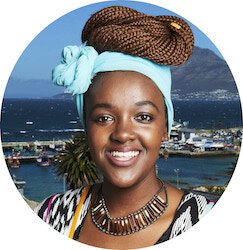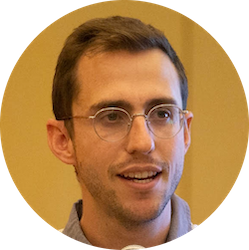2.12.2021
the fourth and final Funzi Mobile talks event of 2021. Once again, the panel discussion provided some highly interesting insights into the topic. The conversation also established new concrete steps on how to overcome the paradox of accredited learning.
From grassroots experience to comprehensive research, the panel examined the different perspectives and challenged accredited learning as the best way to build and evaluate employee competence. The conversation also delved into the current global employability trends and digital learning.
✓ Accreditation is not the only challenge; The contemporary schooling system is unjust and built to serve a minority of the population.
✓ Major global corporates could partner with high schools and create learnerships and training programs to ensure employment after high school.
✓The way accreditation is done in the current education system is outdated.
✓Skills assessment should be more important than accreditations.
✓ The results that employees and candidates have achieved should be considered as proof of skills over accreditations.
✓ Employers should look at the candidates more holistically.
✓ Peer-to-peer evaluation may allow us to move away from accreditations in the future.
✓ Initiatives such as the newly announced “Global Dropout Network”, a collaboration between organizations and institutions will revolutionize learning.
If you have missed the panel discussion, watch the recording.
Panelists
Mona-Lisa Bango
Co-Founder, The Nomzano Club
“Non-accredited learning should be considered by the recruiters and employers.”
Liana Melchenko
Global Head of Insights and Innovation, The Adecco Group Foundation
“The bigger question than accreditation is the assessment of the skills that we have, results we produce, and the time that we spent.”
Pabi Mogosetsi
Country Manager, Universum Global (South Africa)
“Accreditetion from your peers allows to move away from the formal accredtions.”
Aape Pohjavirta
Co-Founder & Leader, Funzi
“Universities are basing the curriculum to past occurrences; Hence the future curriculums are actually a gateway to the past.”
21.9.2021
Earlier this year, we hosted a three-part How to.. with Funzi event series that gave our learners an opportunity to get practical advice from experts in employability, recruitment, career development, and building an online presence that is professional and consistent. The webinar series walks learners through creating a career plan, writing a perfect CV, and concrete steps to build a coherent personal brand.
Funzi supports learners on their skills development and employability journey and provides tools to achieve a dream job or starting a business. Our flexible self-study courses and supporting learning assets help our users to grow into their full professional potential.
Go to funzi.mobi and get familiar with our course selection.
How to create a career plan?
In the first webinar episode, Jenni Pekkola from our Funzi’s content team enlightens learners on how to make a 180° career pivot and land a job that allows them to follow their interests and use their strengths in day-to-day work. In addition, Jenni speaks about motivation and how to map your best qualities to find a fulfilling career.
How to make your CV stand out?
Did you know that recruiters only glance at CVs for 6 seconds on average? In the second episode, HR expert Lanre Adeoye reveals the insights of how to compose a CV that will get noticed. Lanre has studied thousands of CVs in her job as a recruiter, and she unfolds the best practices and the most common mistakes applicants make while creating a resume. This webinar will explain step-by-step how to create a CV that will dazzle the recruiters.
How to build your personal brand?
Social media visibility is an excellent way of building a brand for many small business owners or freelancers. But brand-building is not just for the entrepreneurs; job-seekers can and should focus on their online presence, and they can benefit from coherent and consistent personal branding. In this webinar episode, entrepreneur and photographer Tamara Putri shares her personal branding journey with Funzi learners. She reveals her learnings and how coherent personal branding has helped grow her business.
24.8.2021
Our third Funzi Mobile talks event was a part of the OCCE 2021 hybrid conference hosted by Tampere University. The theme of our panel discussion was The Sustainable Development Goals, digitalization & learning. The panelists represented different perspectives and organizations such as the United Nations, formal education institutions, non-profit youth organizations, and learning service developers.
The discussions evolved around digital equity, the opportunities and challenges digitalization presents to learning, accredited and non-accredited skills development, and how to enhance equal learning opportunities for all.
✓ #SDG4 promotes ‘lifelong learning for all’ and a big part of this is non-static and evolving digital platforms. These digital platforms are especially good for those looking to build skills without access to traditional education. Their importance can also be seen during crises.
✓ One obstacle causing a digital divide is how expensive data is in many countries.
✓Access to education is a human right. We all have a shared responsibility to ensure that everyone gets the skills they need.
✓ The skills (and subsequent performance) you bring to a job - no matter if they are acquired through a university, Funzi, or on YouTube - are more important than accreditation.
✓ We make many false assumptions about young people and technology - not all have access to technology, possess good computer skills, use it for anything other than social media or take advantage of it to benefit their lives. We need to adapt to the platforms they are using and engage them.
If you have missed the panel discussion, watch the recording.
Panelists
Reynald Maeda
Executive Director of the United Nations Association of Tanzania
“Digital learning should be its own Sustainable Development Goal.”
Aape Pohjavirta
Founder & President of Funzi
“Digitalization and internet are human rights that everyone should have access to.”
Professor Samuel John
Director & Professor at Department of Mechanical and Marine Engineering, Namibia University of Science and Technology
“Partnerships allow you to access the best teachers and instructors anywhere in the world.”
Aviwe Funani
Programme, Policy, and Advocacy Manager at
Waves for Change
“How do we adapt the platforms that young people are already using and actually engage them for learning purposes.”
16.6.2021
Funzi Mobile talks event was about the fundamental skills of the future of work. We had the privilege to host world-leading researchers and learning advocates and shine a light on the transformation of work-life and skills that can help us to adapt to the change. We learned that the future of work would become human-centered, and education and learning should reflect that.
If you have missed the live discussion, watch the recording.
Panelists
Professor Markku Wilenius
Dean, Dubai Future Foundation
“There are no limits to learning unless you stop listening.”
Dr. Saara Tamminen
Leading Specialist in the Climate and Nature Solutions Sitra, the Finnish Innovation Fund
“Setting an example and then joining the forces is the key to making bigger changes.”
Marlon Parker
Founder, Rlabs
“Young people must be put in environments where empathy can be exercised.”
Aape Pohjavirta
Founder & President, Funzi
“Empathy is a superpower because it puts you in a position where you’re never alone.”
25.2.2021
Our first Funzi online event on February 25th, ‘The future of learning is mobile: Bridging 21st century skills gaps in emerging markets’ was a success! The different viewpoints from our speakers generated vivid and progressive discussions. We received stellar feedback from education advocates, partners, and most importantly, from learners worldwide. People passionate about learning shared their ideas with us, and many post-event conversations sparked up. We truly feel like we created a platform for future discussions.
Watch the event recording on Facebook Live.
Panelists
Narriman Ajdiri-Beim
Founder, The Media Atlas
“Users are taking control of their own learning pathways and focus”
Dr Dirk Van Damme
Senior counsellor for education and skills at the OECD, as well as the head of the Innovation and Measuring Progress Division (IMEP)
“A person is hired because of hard skills but is fired because of soft skills”
Sandeep Aneja
Founder, Kaizenvest
“Entrepreneurship skills turn people from job seekers to job providers”
Robyn Pretorius
Learning experience designer and project lead, Harambee Youth Employment Accelerator
“We cannot just focus on solutions to fix the problem but we have to change the system”
Brent Davidoff
Youth employment accelerator, Harambee Youth Employment Accelerator
“There is a strong correlation between connectivity and economic opportunity”
Aape Pohjavirta
Founder and President, Funzi
“Education is about someone else’s dream. Learning is about your own dreams.”
























